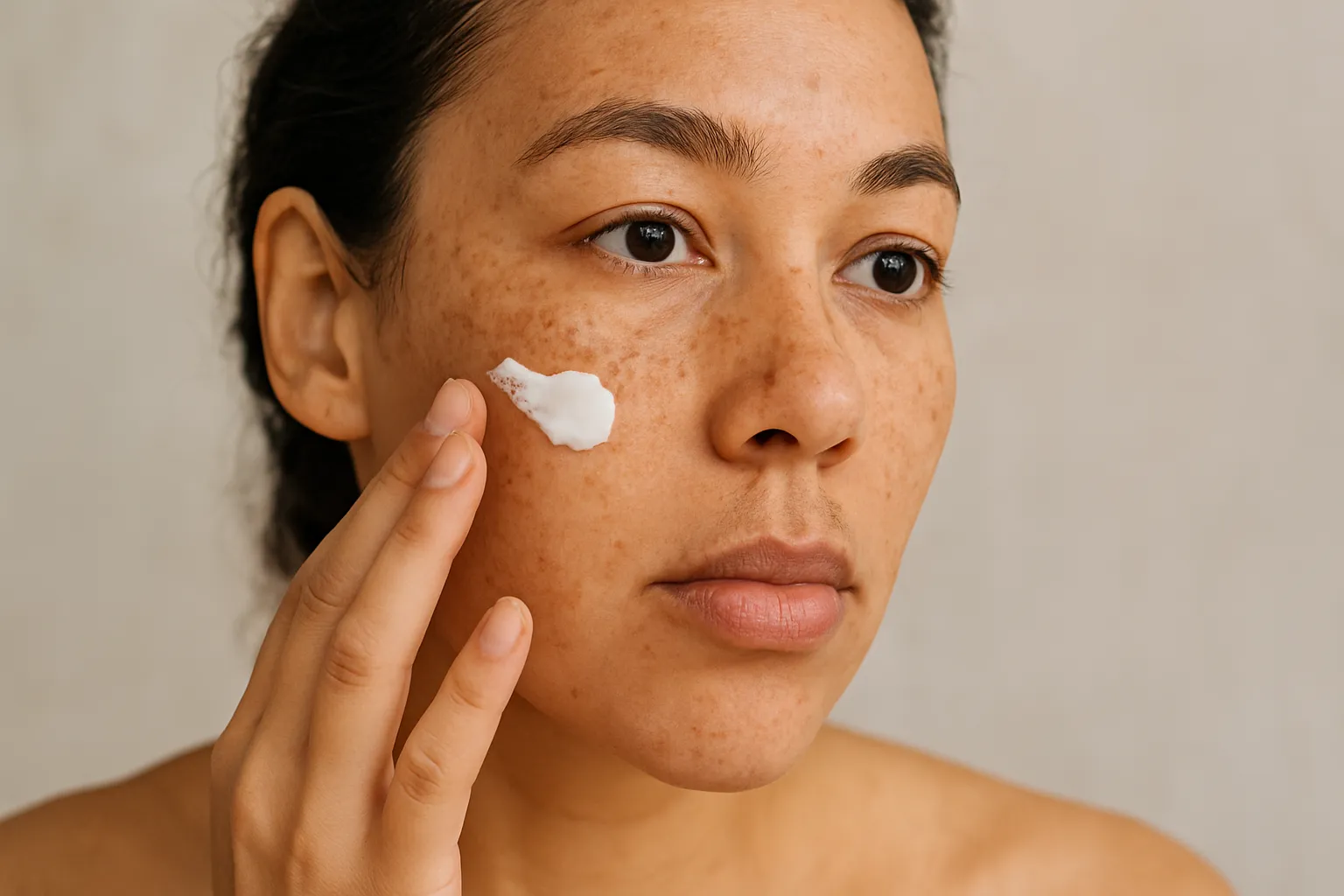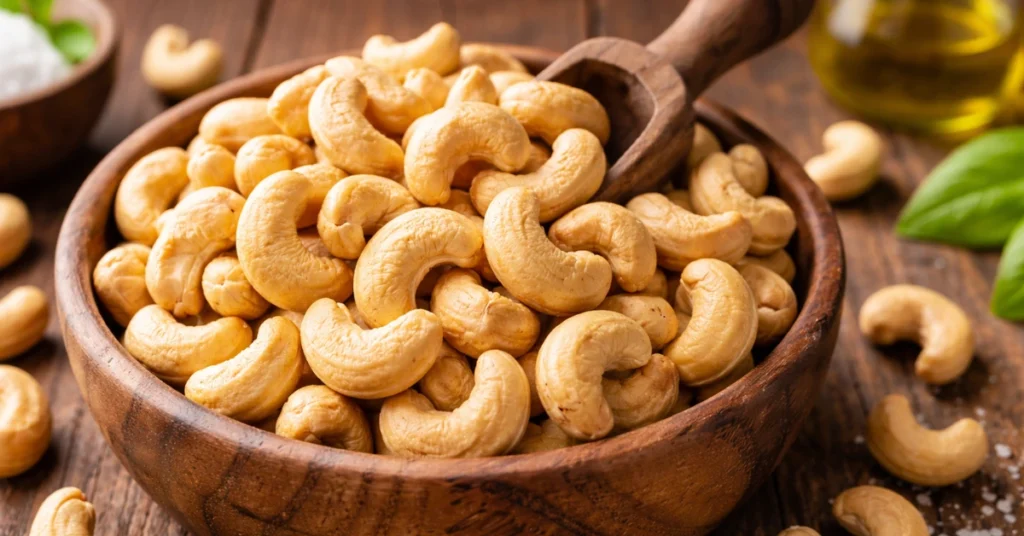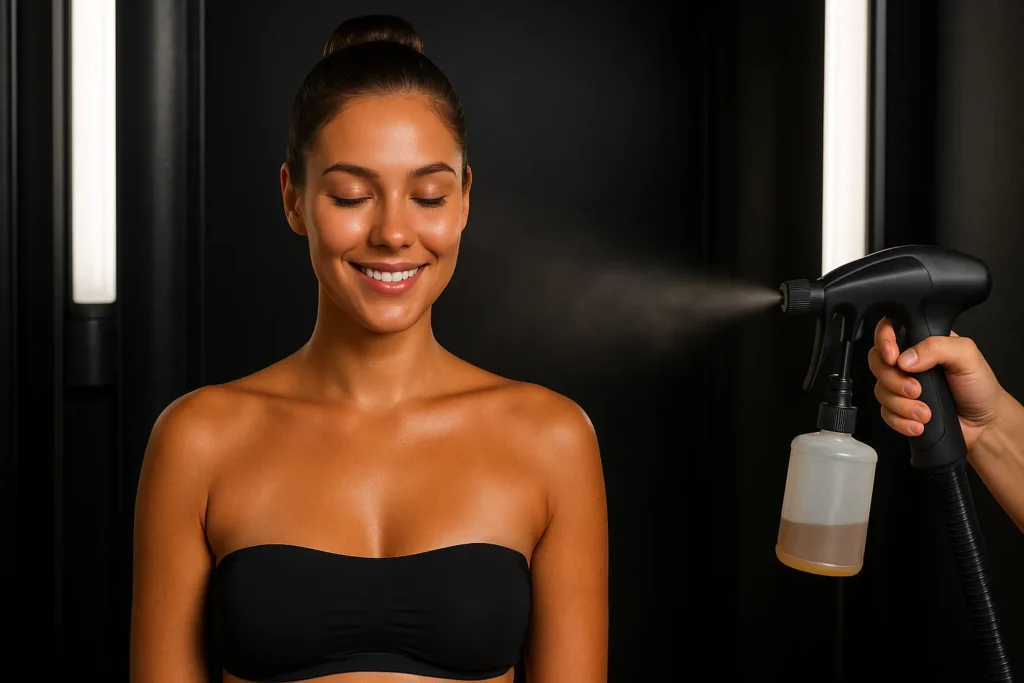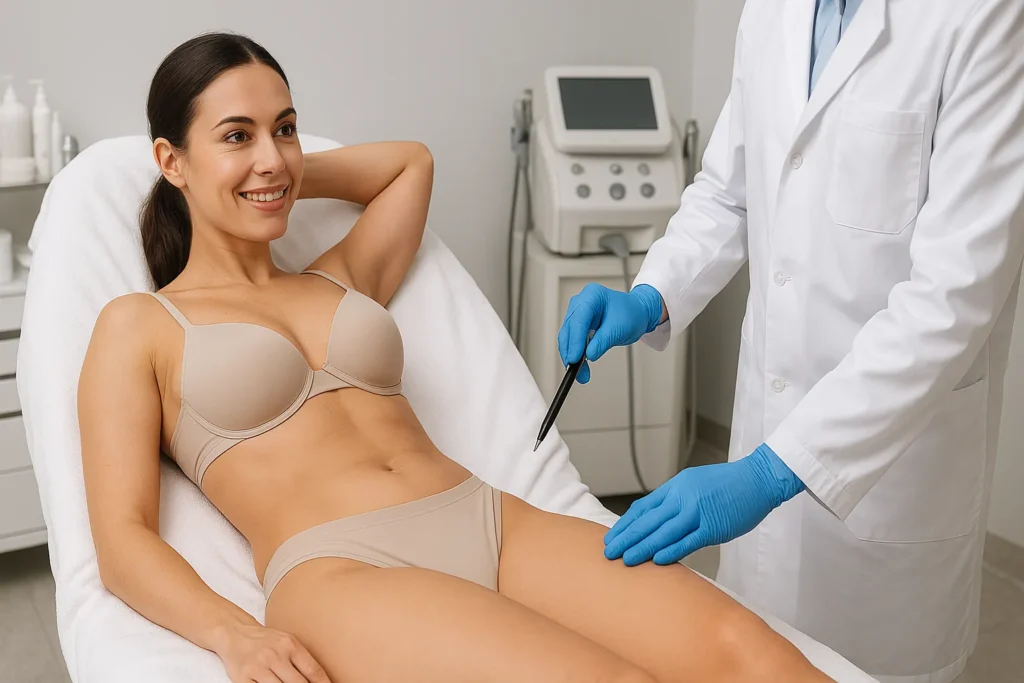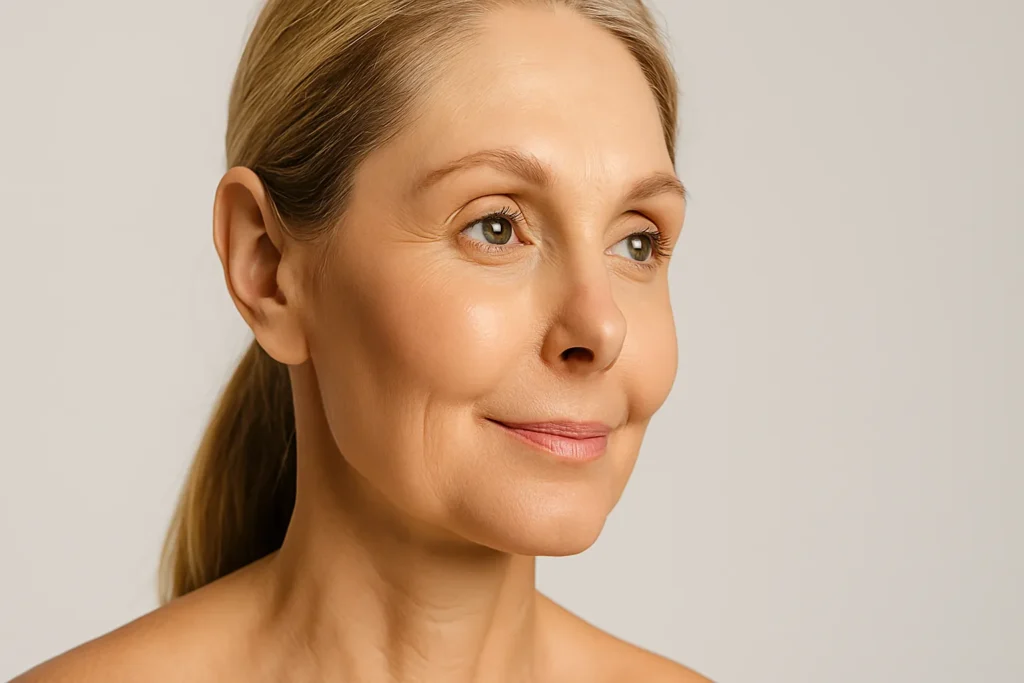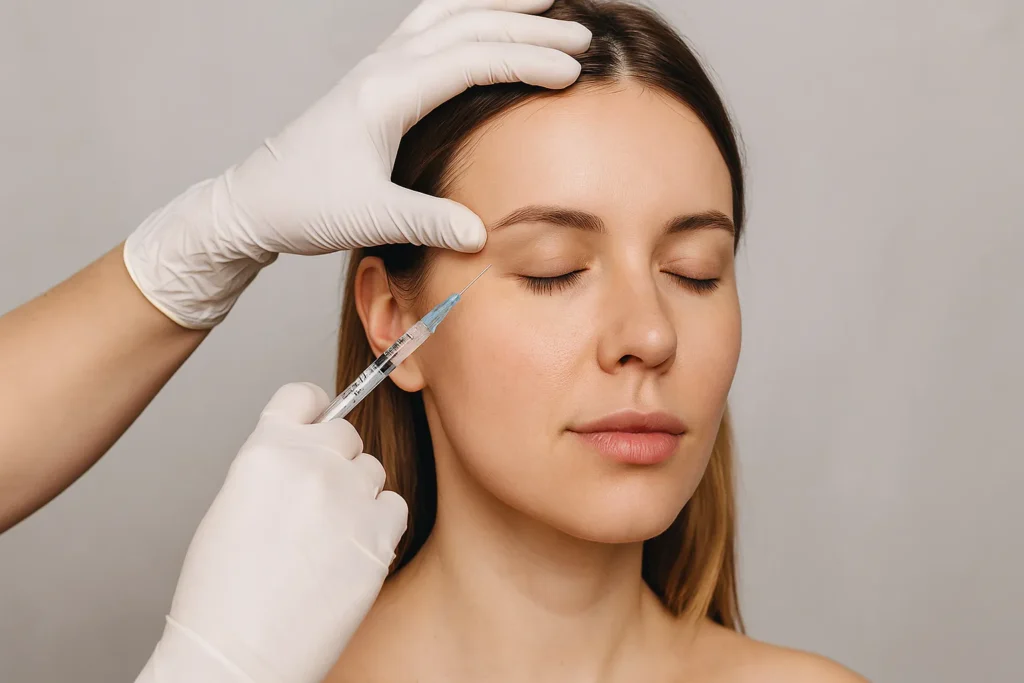Melanin is the pigment that gives your skin, hair, and eyes their natural color. While it’s an important protector against harmful UV rays, excess melanin can lead to uneven skin tone, dark spots, and hyperpigmentation. If you’ve been wondering how to stop melanin production for a brighter, even-toned complexion, you’re in the right place.
In this guide, we’ll explore what causes excess melanin, how to reduce it naturally, and the best skincare and lifestyle tips to maintain healthy, balanced skin. Whether you want to target your face, body, or overall pigmentation, these methods are backed by both science and skincare wisdom.
What is Melanin and Why Does Your Body Produce It?
Before we talk about how to stop melanin production in the body, it’s important to understand why it exists in the first place. Melanin is produced by specialized cells called melanocytes, and its main job is to protect your skin from UV damage by absorbing sunlight.
The more sun exposure you get, the more melanin your body produces. This is why your skin tans in the summer or after spending time outdoors. While this is a natural defense mechanism, sometimes your body produces more melanin than necessary, leading to pigmentation issues.
Causes of Excess Melanin Production
Knowing the causes is the first step in figuring out how to stop melanin production in the skin. Here are the most common triggers:
- Excessive Sun Exposure – The biggest cause of melanin overproduction.
- Hormonal Changes – Pregnancy, birth control pills, or thyroid problems can cause pigmentation.
- Skin Inflammation – Acne, eczema, or injuries can trigger post-inflammatory hyperpigmentation.
- Certain Medications – Some drugs can make your skin more prone to pigmentation.
- Genetics – Some people naturally produce more melanin than others.
How to Stop Melanin Production Naturally
If you prefer natural remedies, there are safe and effective ways to slow down melanin production without harsh chemicals.
1. Use Natural Skin Brighteners
Ingredients like turmeric, aloe vera, and licorice root are known to naturally inhibit melanin production. Turmeric contains curcumin, which blocks excess melanin synthesis, while aloe vera soothes the skin and promotes healing.
2. Vitamin C Rich Diet
Vitamin C helps brighten skin and inhibits the enzyme responsible for melanin production. Citrus fruits, strawberries, and bell peppers are great additions to your diet.
3. Green Tea Extracts
Green tea contains epigallocatechin gallate (EGCG), which helps reduce melanin formation in the skin naturally.
If you want more in-depth natural methods, you can also explore our detailed guide on How to Reduce Melanin Naturally for additional remedies.
How to Stop Melanin Production on Face
Facial skin is delicate and often the most affected by pigmentation. Here’s how to stop melanin specifically for your face:
1. Daily Sunscreen Protection
Using SPF 30 or higher is the most effective way to stop melanin production on your face. Even on cloudy days, UV rays can trigger pigmentation.
2. Gentle Exfoliation
Regular exfoliation with mild scrubs or AHAs (alpha hydroxy acids) removes dead skin cells, allowing bright new skin to appear.
3. Topical Vitamin C Serums
A good Vitamin C serum can directly inhibit melanin formation and give your face a radiant glow.
If your pigmentation is due to tanning, you might also benefit from these tips on How to Remove Tan from Face for faster results.
How to Stop Melanin Production in Body
The same principles apply to your body, but with a few extra considerations:
- Use Body Lotions with Kojic Acid or Licorice Extract – These ingredients help lighten pigmentation over time.
- Wear Protective Clothing – Long sleeves, wide-brimmed hats, and UV-protective fabrics help prevent sun-triggered melanin.
- Stay Hydrated – Proper hydration keeps your skin barrier healthy, which is essential for controlling pigmentation.
Medical Treatments to Reduce Melanin
If natural remedies aren’t giving you the desired results, you might consider professional treatments.
1. Chemical Peels
These involve applying a chemical solution to the skin, which removes the top layer and encourages new cell growth.
2. Laser Therapy
Laser treatments target melanin and break it down, giving you a more even complexion.
3. Microdermabrasion
This mechanical exfoliation method removes the outermost layer of skin to reduce pigmentation.
While these treatments can be effective, it’s important to consult a dermatologist before making a decision.
Lifestyle Changes to Control Melanin Production
Healthy skin starts from within. Here are a few simple habits to adopt:
- Eat a Balanced Diet – Include antioxidant-rich foods like berries, spinach, and nuts.
- Avoid Smoking and Excess Alcohol – Both can damage skin and trigger pigmentation.
- Manage Stress – Stress can cause hormonal imbalances that lead to skin issues.
If you’ve been dealing with recurring skin inflammation, it might be worth exploring ways to improve overall health, like How to Cure Gastric Problem Permanently, since digestive health is often linked to skin health.
Skincare Ingredients That Inhibit Melanin Production
When choosing products, look for these melanin-inhibiting ingredients:
- Niacinamide – Reduces pigmentation and strengthens skin barrier.
- Arbutin – A natural skin brightener derived from plants.
- Kojic Acid – Inhibits tyrosinase, the enzyme that triggers melanin production.
- Azelaic Acid – Great for reducing acne-related pigmentation.
When to See a Dermatologist
If your pigmentation is spreading rapidly, darkening, or accompanied by other symptoms, it’s important to seek professional help. Conditions like melasma or post-inflammatory hyperpigmentation might need a tailored treatment plan.
A dermatologist can recommend the right combination of lifestyle changes, topical treatments, and procedures for your skin type.
The Role of Oral Health in Skin Pigmentation
Surprisingly, dental health can influence your skin’s appearance. Poor oral hygiene can lead to inflammation, which sometimes triggers skin pigmentation issues. That’s why understanding habits like How Salt Keeps Dental Problems Away can be a useful addition to your overall skincare routine.
Addressing Pigmentation Between Teeth and Lips
Some people also notice pigmentation around the mouth or between the lips and teeth area. This can sometimes be linked to gum health or minor injuries. For tips on oral beauty, you can explore How to Reduce Gap Between Teeth Naturally at Home for better smile aesthetics.
Final Thoughts
Stopping melanin production completely isn’t possible or even healthy; your body needs it for protection. However, by understanding how to stop the production of melanin in skin safely, you can reduce excess pigmentation, maintain an even tone, and boost your skin’s natural glow.From natural remedies and professional treatments to lifestyle habits, there’s a method for everyone, no matter your age or skin type. And if you’re ever looking for answers to beauty, health, or wellness questions beyond skincare, NutBolt India is your go-to place for reliable, easy-to-understand information.

